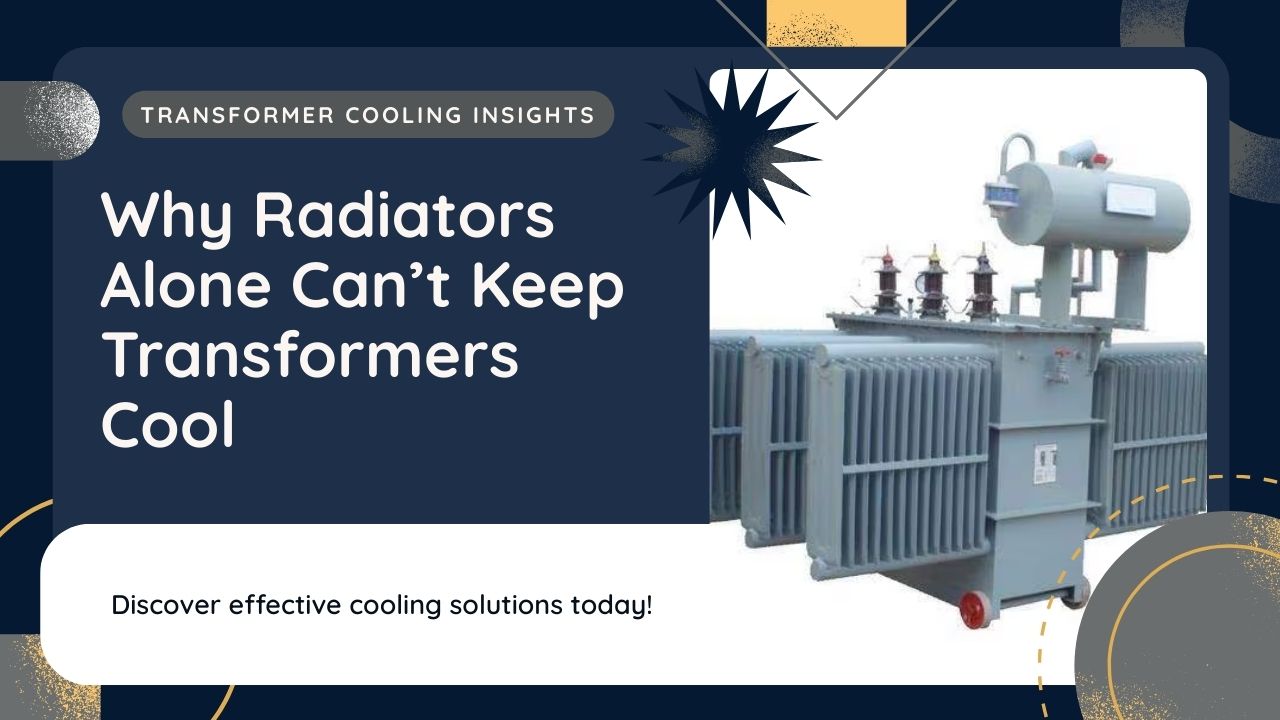

Heat doesn’t wait for systems to catch up. Once your transformer crosses a certain load threshold, temperature begins to outpace design margins.
Even large radiators can reach their limits faster than expected. Ambient conditions shift. Oil flow slows.
Suddenly, the system that looked oversized on paper feels unprepared in the field.
This is where deeper cooling strategies come in.
Radiators help, but they rarely solve everything on their own.
Every transformer generates heat as a byproduct of normal operation. But the intensity of that heat rises sharply with increased loading.
Higher current leads to more resistive losses, and the core itself begins to warm faster.
The absolute load number matters, but how that load moves through the system and strains the cooling design often matters more.
This is where the gap forms. Radiators can move a certain amount of heat per unit time, but not all thermal loads behave predictably. Field conditions, oil quality, and component wear all change the equation.
Radiators work by giving hot oil more surface to cool against air. But adding more radiators only goes so far.
When airflow stagnates or dust builds up around the fins, efficiency drops. Even well-sized radiators can underperform in real-world conditions.
In some cases, it makes more sense to upgrade the oil flow rate or introduce forced cooling systems than to just bolt on more metal.
Heat movement depends on flow dynamics as much as surface area.
Some heat-related problems form inside the transformer, far from where radiators can help. These are often the reasons cooling falls short despite healthy surface equipment.
Here are a few examples you might see in the field:
> Layered oil that settles by temperature and stops circulating evenly, especially in taller tanks
> Winding zones that hold on to heat longer due to limited contact with flowing oil
> Internal channels that narrow with buildup or age, slowing down oil circulation
> Airflow disruptions around the unit caused by equipment placement or poor venting
Many of these issues hide until failure or planned disassembly reveals them.
External inspections miss the signs. Testing that traces oil flow or monitors internal heat gradients gives you a much earlier read.
Adding active cooling systems changes the pace of heat removal. Forced-air fans boost airflow across radiator fins, while pumps circulate oil through faster loops.
Both solutions can extend a transformer's safe operating range significantly.
The timing of these upgrades matters.
Introducing fans or pumps only after overheating starts will keep chasing the problem. It works better when these systems are included in the planning stage or built into the base design.
Transformer cooling depends on many small decisions made during design. That includes oil velocity, tank geometry, fan placement, and even the choice of insulation.
A thermal shortfall usually starts with one of these factors.
That is why some facilities benefit from thermal modeling and pre-install load simulation.
These tools help teams compare different cooling scenarios before committing to a setup. It is especially useful in sites where ambient conditions change with seasons.
Cooling works best when it is part of the core design, not just a bolted-on patch.
We’ve seen plenty of installations where radiator upgrades brought only short-term relief.
In our projects, we often include oil movement tweaks, pressure balancing, and fan coordination alongside any radiator work. These changes make the unit more stable under load and help reduce thermal fatigue over time.
Makpower's team builds and retrofits transformers for exactly these kinds of challenges. And in most cases, what helps the most is thinking through cooling as a system, not just a set of parts.